Blockchain technology has emerged as a game-changer across various industries, revolutionizing how data is stored and shared. Its decentralized nature ensures transparency and security, making it a valuable asset beyond just cryptocurrency. From supply chain management to healthcare, businesses are tapping into blockchain’s potential to streamline processes and enhance trust.
As organizations continue to explore innovative solutions, the applications of blockchain are expanding rapidly. This technology not only fosters efficiency but also opens new avenues for digital identity verification, smart contracts, and even voting systems. Understanding these applications is crucial for anyone looking to stay ahead in today’s digital landscape.
Table of Contents
ToggleOverview of Blockchain Applications
Blockchain technology offers diverse applications that enhance efficiency and security across industries. Below are key areas where blockchain applications demonstrate significant impact:
- Supply Chain Management: Blockchain provides real-time tracking of goods, ensuring transparency and accountability from manufacturers to consumers.
- Healthcare: Blockchain enables secure sharing of patient records, streamlining the healthcare process while maintaining privacy and compliance with regulations.
- Digital Identity Verification: Blockchain creates decentralized identity solutions, reducing identity theft risks and allowing users more control over their personal information.
- Smart Contracts: Blockchain facilitates self-executing contracts with predefined conditions, automating processes across various sectors like real estate and finance.
- Voting Systems: Blockchain enhances election integrity by ensuring transparency, accessibility, and immutability of votes, reducing the risk of fraud.
- Financial Services: Blockchain streamlines transactions, lowers costs, and increases transaction speeds within banking, insurance, and investment sectors.
Each application highlights blockchain’s ability to improve trust, reduce fraud, and optimize processes, underscoring its growing relevance in the modern digital ecosystem.
Financial Services

Blockchain technology significantly alters financial services by improving transaction efficiency and reducing costs. Its implementation fosters enhanced security and transparency within various financial transactions.
Cryptocurrency
Cryptocurrency serves as a foundational application of blockchain in financial services. Bitcoin, the first cryptocurrency, leverages blockchain for decentralized transactions. It eliminates intermediaries, allowing peer-to-peer transfers with lower fees. Stablecoins, tied to traditional currencies, offer stability while maintaining blockchain’s benefits. Decentralized finance (DeFi) platforms, built on blockchain, provide users with access to financial services like lending and borrowing without traditional banks. This approach democratizes finance, enabling broader access to financial services across the globe.
Smart Contracts
Smart contracts automate and enforce agreements through code on blockchain platforms. These self-executing contracts perform predefined actions when conditions are met. In financial services, smart contracts streamline processes like loan approvals and insurance claims. They eliminate delays associated with manual processing and reduce associated costs. By automating functions, smart contracts enhance trust among parties, as transactions occur only when agreed-upon terms are fulfilled. This feature minimizes fraud risk and increases operational efficiency in various financial applications.
Supply Chain Management
Blockchain technology revolutionizes supply chain management by enhancing traceability and efficiency throughout the process. It provides a secure, transparent platform for tracking goods from production to delivery.
Traceability
Blockchain offers immutable records of each transaction occurring within the supply chain. Each product’s journey is recorded on a decentralized ledger, accessible to all participants. Companies can track raw materials, components, and finished goods in real-time. This traceability facilitates compliance with regulatory standards and enhances accountability for producers and suppliers. For example, retailers can trace food products back to their origin, ensuring safety and quality assurance. Additionally, stakeholders can quickly identify sources of contamination or fraud, mitigating risks and protecting consumer health.
Efficiency
Blockchain streamlines logistics and reduces operational costs by automating processes and minimizing paperwork. Smart contracts automatically execute transactions when predefined conditions are met, accelerating the supply chain workflow. This reduces time spent on manual entry and verification, leading to quicker resolution of disputes. Real-time updates on inventory levels and shipment statuses enhance coordination among suppliers, manufacturers, and distributors. The result is a more agile supply chain, capable of adapting swiftly to market changes and demands. By improving information sharing across the network, blockchain eliminates redundancies and enhances overall productivity.
Healthcare
Blockchain technology significantly enhances the healthcare sector by improving data security, privacy, and efficiency in various processes.
Patient Data Management
Blockchain enables secure, decentralized storage of patient records. Each patient transaction creates an immutable record, allowing authorized parties to access real-time health data. This reduces discrepancies in medical history, fosters seamless information sharing among healthcare providers, and enhances patient privacy. For example, patients can grant selective access to their medical records while maintaining control over their data, minimizing identity theft risks. Additionally, the streamlined access to complete medical histories improves diagnoses and treatment outcomes.
Drug Supply Chain
Blockchain greatly improves transparency in the pharmaceutical supply chain. Each transaction logged on the blockchain creates a tamper-proof record of drug provenance. This ensures traceability from manufacturers to end-users, significantly reducing counterfeit drug distribution. By verifying the authenticity of medications, healthcare providers can guarantee patient safety and trust. For instance, hospitals and pharmacies can track products from manufacturing to delivery, ensuring compliance with regulatory standards and combating drug theft. Furthermore, blockchain automates recall processes, allowing for swift identification and removal of compromised products from circulation.
Government and Public Sector
Blockchain technology transforms government and public sector operations by increasing transparency, security, and efficiency. It enhances core functions such as digital identity verification and voting systems.
Digital Identity Verification
Blockchain improves digital identity verification by providing a decentralized, secure system for storing identities. Individuals control access to their information, significantly reducing identity theft risks. By using encryption, blockchain ensures that only authorized entities can access personal data. For example, government agencies can issue digital IDs stored on a blockchain, allowing citizens to verify their identity securely without sharing excessive personal information. This approach streamlines services like passport applications or voter registrations while maintaining user privacy.
Voting Systems
Blockchain enhances voting systems by ensuring transparency and integrity in elections. Each vote is recorded on a decentralized ledger, making tampering virtually impossible. This technology provides a clear, auditable trail of each transaction, promoting trust in election results. For instance, voters can verify that their votes were counted correctly through the blockchain. Smart contracts also automate processes such as voter authentication and ballot tracking, reducing human errors and the potential for fraud. Implementing blockchain in voting systems facilitates secure, efficient elections, ultimately reinforcing confidence in democratic processes.
Blockchain technology is reshaping industries by offering innovative solutions that enhance transparency and security. Its applications extend far beyond cryptocurrency, impacting sectors like supply chain management, healthcare, and public governance. By leveraging blockchain, organizations can streamline operations and improve trust among stakeholders.
As this technology continues to evolve, its potential to transform everyday processes becomes increasingly evident. Embracing blockchain not only positions businesses to stay competitive but also paves the way for a more secure and efficient digital future. The ongoing exploration of its capabilities will undoubtedly reveal even more opportunities for growth and improvement across various domains.








